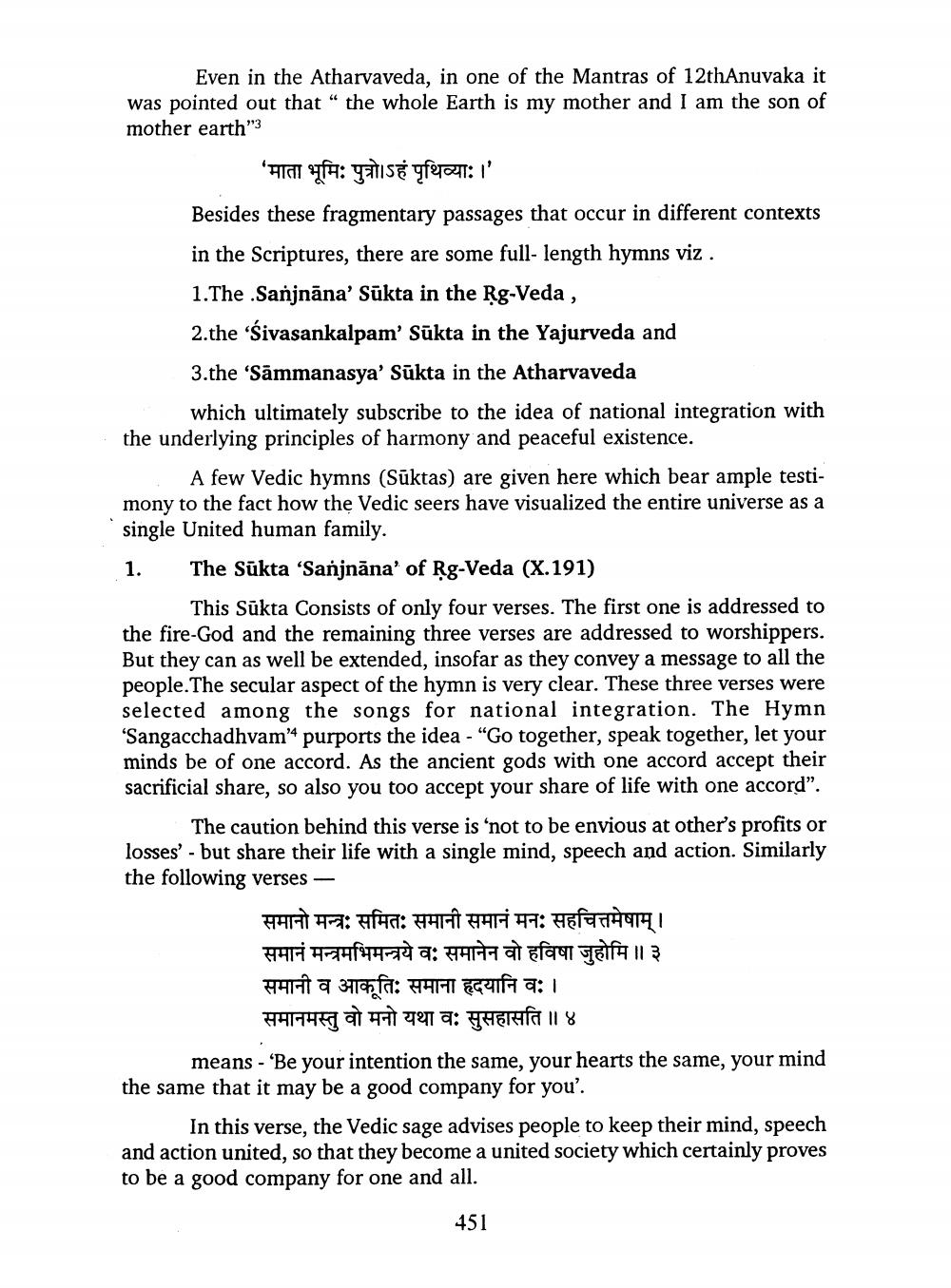________________
Even in the Atharvaveda, in one of the Mantras of 12thAnuvaka it was pointed out that “the whole Earth is my mother and I am the son of mother earth"
HTAT PF#: YETISÉ YFZ4T: I
Besides these fragmentary passages that occur in different contexts
in the Scriptures, there are some full-length hymns viz.
1.The.Sanjnāna' Sūkta in the Rg-Veda,
2.the 'Sivasankalpam' Sūkta in the Yajurveda and 3.the "Sāmmanasya' Sūkta in the Atharvaveda
which ultimately subscribe to the idea of national integration with the underlying principles of harmony and peaceful existence.
A few Vedic hymns (Sūktas) are given here which bear ample testimony to the fact how the Vedic seers have visualized the entire universe as a single United human family. 1. The Sūkta “Sanjnāna' of Ķg-Veda (X.191)
This Sūkta Consists of only four verses. The first one is addressed to the fire-God and the remaining three verses are addressed to worshippers. But they can as well be extended, insofar as they convey a message to all the people. The secular aspect of the hymn is very clear. These three verses were selected among the songs for national integration. The Hymn 'Sangacchadhvam' purports the idea - "Go together, speak together, let your minds be of one accord. As the ancient gods with one accord accept their sacrificial share, so also you too accept your share of life with one accord”.
The caution behind this verse is ‘not to be envious at other's profits or losses' - but share their life with a single mind, speech and action. Similarly the following verses -
समानो मन्त्रः समितः समानी समानं मनः सहचित्तमेषाम् । समानं मन्त्रमभिमन्त्रये वः समानेन वो हविषा जुहोमि ॥३ समानी व आकूतिः समाना हृदयानि वः ।
समानमस्तु वो मनो यथा वः सुसहासति ॥ ४ means - 'Be your intention the same, your hearts the same, your mind the same that it may be a good company for you'.
In this verse, the Vedic sage advises people to keep their mind, speech and action united, so that they become a united society which certainly proves to be a good company for one and all.
451




